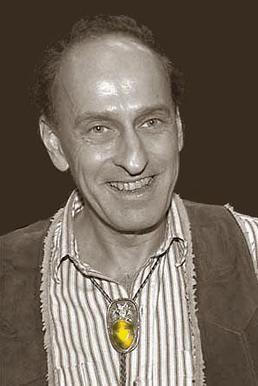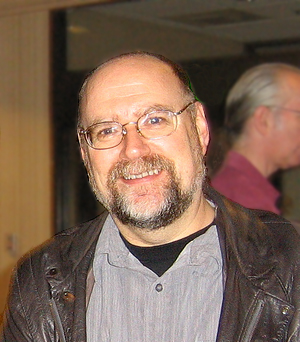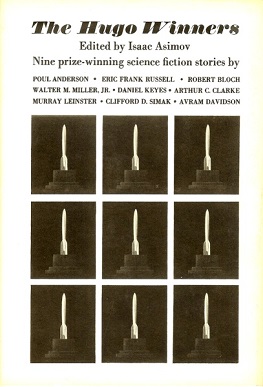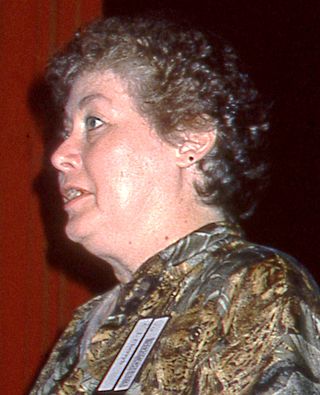
Roger Joseph Zelazny was an American poet and writer of fantasy and science fiction short stories and novels, best known for The Chronicles of Amber. He won the Nebula Award three times and the Hugo Award six times, including two Hugos for novels: the serialized novel ...And Call Me Conrad (1965), subsequently published under the title This Immortal (1966) and then the novel Lord of Light (1967).

Robert Charles Wilson is an American-Canadian science fiction author.

Christopher Mackenzie Priest was a British novelist and science fiction writer. His works include Fugue for a Darkening Island (1972), The Inverted World (1974), The Affirmation (1981), The Glamour (1984), The Prestige (1995), and The Separation (2002).
Michael Lawson Bishop was an American author. Over five decades and in more than thirty books, he created what has been called a "body of work that stands among the most admired and influential in modern science fiction and fantasy literature."

Ian McDonald is a British science fiction novelist, living in Belfast. His themes include nanotechnology, postcyberpunk settings, and the impact of rapid social and technological change on non-Western societies.
The Eight Worlds are the fictional setting of a series of science fiction novels and short stories by John Varley, in which the Solar System has been colonized by human refugees fleeing an alien invasion of the Earth. Earth and Jupiter are off-limits to humanity, but Earth's Moon and the other worlds and moons of the Solar System have all become heavily populated. There are also minor colonies set in the Oort cloud at the edge of the Solar System. Faster than light travel is not possible, though it is mentioned that test-flights will begin soon at the end of The Golden Globe, and the species has not as yet managed to extend itself to other stars.
The science fiction writer Robert A. Heinlein (1907–1988) was productive during a writing career that spanned the last 49 years of his life; the Robert A. Heinlein bibliography includes 32 novels, 59 short stories and 16 collections published during his life. Four films, two TV series, several episodes of a radio series, at least two songs and a board game derive more or less directly from his work. He wrote the screenplay for Destination Moon (1950). Heinlein also edited an anthology of other writers' science fiction short stories.

The Hugo Winners was a series of books which collected science fiction and fantasy stories that won a Hugo Award for Short Story, Novelette or Novella at the World Science Fiction Convention between 1955 and 1982. Each volume was edited by American writer Isaac Asimov, who wrote the introduction and a short essay about each author featured in the book. Through these essays, Asimov reveals personal anecdotes, which authors he's jealous of, and how other writers winning awards ahead of him made him angry. Additionally, he discusses his political beliefs, friendships, and his affinity for writers of "hard science fiction". The first two volumes were collected by Doubleday into a single book, which lacks a publishing date and ISBN.

American writer C. J. Cherryh's career began with publication of her first books in 1976, Gate of Ivrel and Brothers of Earth. She has been a prolific science fiction and fantasy author since then, publishing over 80 novels, short-story compilations, with continuing production as her blog attests. Cherryh has received the Hugo and Locus Awards for some of her novels.
The 37th World Science Fiction Convention (Worldcon), also known as Seacon '79, was held on 23–26 August 1979 at the Metropole Hotel in Brighton, United Kingdom.

Nebula Winners Twelve is an anthology of science fiction short stories edited by Gordon R. Dickson. It was first published in hardcover by Harper & Row in February 1978, and reprinted in December of the same year. A paperback edition followed from Bantam Books in April 1979.

The Persistence of Vision is a 1978 collection of science fiction stories by American writer John Varley.

The 1977 Annual World's Best SF is an anthology of science fiction short stories edited by Donald A. Wollheim and Arthur W. Saha, the sixth volume in a series of nineteen. It was first published in paperback by DAW Books in May 1977, followed by a hardcover edition issued in September of the same year by the same publisher as a selection of the Science Fiction Book Club. For the hardcover edition the original cover art of Jack Gaughan was replaced by a new cover painting by Richard V. Corben. The paperback edition was reissued by DAW in 1983 under the variant title Wollheim's World's Best SF: Series Six, this time with cover art by Bernal. A British hardcover edition was published by Dennis Dobson in November 1979 under the variant title The World's Best SF 4.
"The Persistence of Vision" is a short story by American writer John Varley. It was included in the anthology of the same name and in The John Varley Reader.

Nebula Awards 24 is an anthology of award-winning science fiction short works edited by Michael Bishop, the second of three successive volumes published under his editorship. It was first published in hardcover and trade paperback by Harcourt Brace Jovanovich in April 1990.

Nebula Awards 20 is an anthology of award winning science fiction short works edited by George Zebrowski. It was first published in hardcover and trade paperback by Harcourt Brace Jovanovich in November 1985.

Nebula Award Stories Seventeen is an anthology of award winning science fiction short works edited by Joe Haldeman. It was first published in hardcover by Holt, Rinehart and Winston in August 1983; a paperback edition was issued by Ace Books in June 1985 under the variant title Nebula Award Stories 17.

Nebula Winners Fourteen is an anthology of award winning science fiction short works edited by Frederik Pohl. It was first published in hardcover by Harper & Row in August 1980. The first British edition was published in hardcover by W. H. Allen in April 1981. Paperback editions followed from Star in the U.K. in March 1982 and Bantam Books in the U.S. in July 1982.

Nebula Awards Showcase 54 is an anthology of science fiction and fantasy short works edited by Bengali writer Nibedita Sen. It was first published in trade paperback by SFWA, Inc. in November 2020, followed by an ebook edition from the same publisher in December of the same year.













